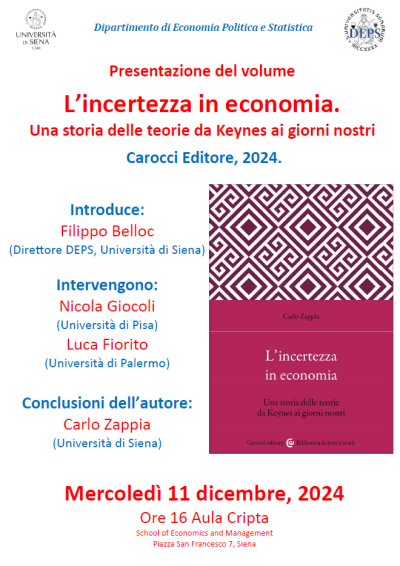On December 11, Carlo Zappia, Associate Professor in the Department of Political Economy and Statistics (DEPS), presented his last book L’incertezza in economia: Una storia delle teorie da Keynes ai giorni nostri. The UNISI community got together in Aula Cripta to discuss how uncertainty in actions by economic agents permeates public discourse, not only among economists but also in political and social debates more broadly. Financial crises and new technologies, not to mention pandemics and wars, constantly remind us that the economic theory of rational choice must account for difficult-to-predict events.
Since at least the 1920s, with the works of John Maynard Keynes and Frank Knight, economists have sought to address this need. However, economics has approached decision-making problems under uncertainty in diverse ways. Some formalized frameworks have proposed precise solutions, while alternative theories have argued that this is not entirely possible, as not all uncertainties can be reduced to probabilistic risks. This volume traces the economic theories that have placed uncertainty at the forefront. The ways it is represented and the tools used to address it have a complex history, which shapes the answers we offer to the major questions of today.
